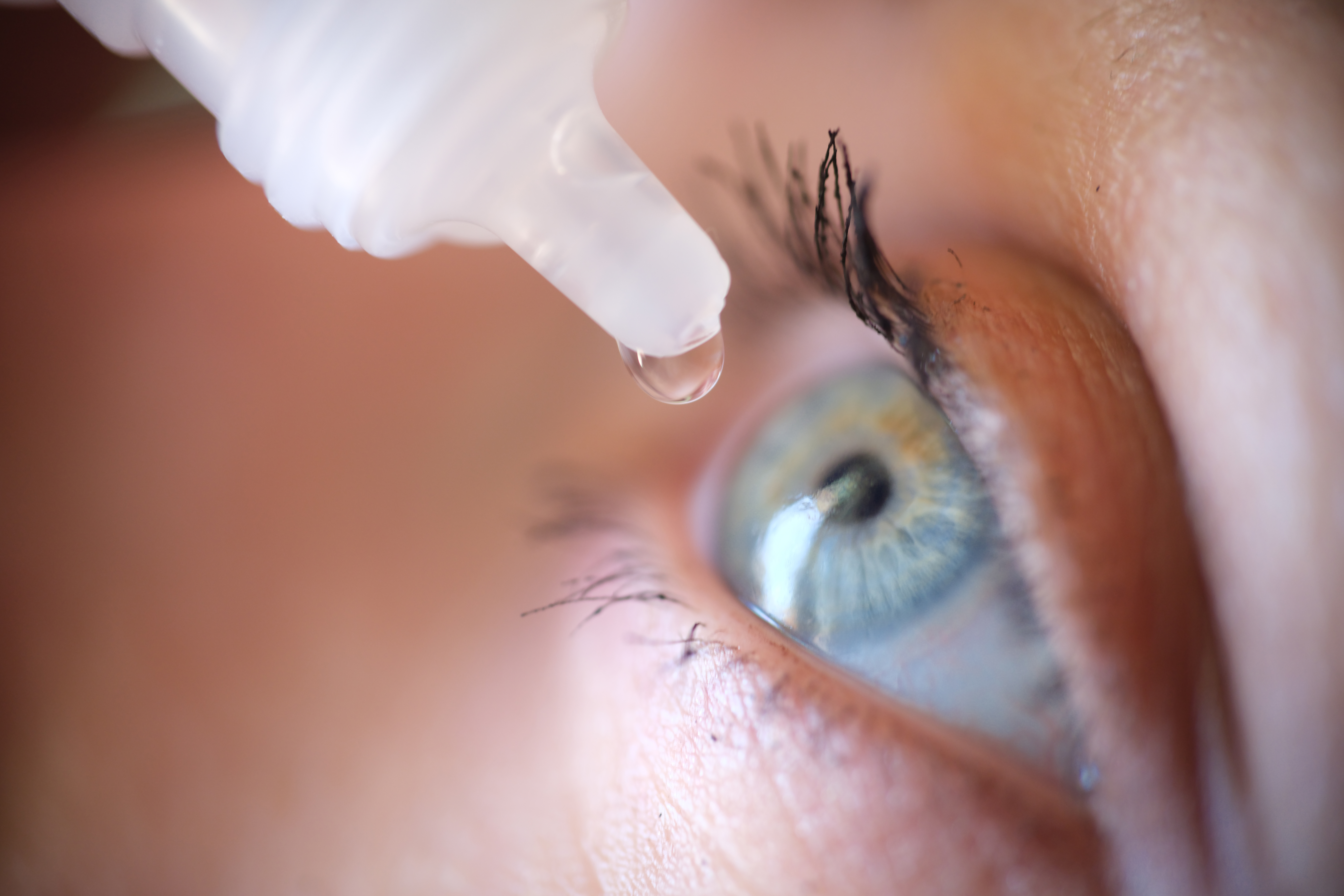Itchy Eyes: Mites, Allergies, or Something Else?
Itchy Eyes? Mites vs. Allergies: What You Need to Know!
Unmasking the Mystery of Itchy Eyelids
Waking up with itchy eyelids is the worst, isn't it? You rub them, blink furiously, and try to ignore the nagging irritation. While your first thought might be allergies acting up, there's another potential culprit lurking: eye mites. Sounds creepy, right? Don't panic! While the idea of tiny creatures living on your eyelashes isn't exactly appealing, it's more common than you think. Let's dive into the world of itchy eyes, exploring the possibilities of both mites and allergies, and what you should definitely be cautious about.
Demodex: The Eyelash Mite You Didn't Know You Had
Eye mites, scientifically known as Demodex, are microscopic mites that call the base of your eyelashes home. The good news is, most people have them! It's only when these little guys become overpopulated that problems arise. This can lead to a condition called Demodex blepharitis, an inflammation of the eyelids that can cause significant irritation.
What Do Demodex Look Like?
As Dr. Damaris Raymondi, an optometrist, explained to NBCUniversal Local, “You can imagine a tiny little insect. They have eight little legs in the front … [and] a little mouth that eats all the sebum — all the old oils that our eyelids produce.” Think of them as tiny, eight-legged oil-gobbling tenants! They're too small to see with the naked eye, but their presence can definitely be felt.
How to Spot the Signs of a Mite Overload
While you can't see the mites themselves, you might notice the residue they leave behind. "If you’ve ever noticed white dots or flaking at the base of someone’s eyelashes, you might have been seeing the excrement of eyelash mites,” Raymondi said, adding that the residue can also clog the meibomian glands, which are responsible for producing oils that keep eyes moisturized.
Allergies: The Usual Suspect
Of course, allergies are a far more commonly suspected cause of itchy eyes. Whether it's pollen floating through the air, pet dander clinging to your clothes, or dust mites nestled in your bedding, allergies can trigger a cascade of uncomfortable symptoms.
Seasonal Allergies: Springtime Suffering
Seasonal allergies are notorious for causing itchy, watery eyes. Pollen from trees, grasses, and weeds can irritate the delicate tissues around your eyes, leading to that familiar itchy sensation. Imagine your eyes as tiny sponges, soaking up all that irritating pollen!
Perennial Allergies: A Year-Round Itch
Unlike seasonal allergies, perennial allergies stick around all year. Common culprits include dust mites, pet dander, and mold. These allergens can cause chronic inflammation, leading to persistent itchy eyes.
Contact Allergies: When Your Makeup Turns on You
Sometimes, the source of your itchy eyes is something you're directly applying to your face. Makeup, skincare products, and even contact lens solutions can contain ingredients that trigger allergic reactions. If you've recently switched products, that could be the culprit!
Mites vs. Allergies: How to Tell the Difference
So, how do you know whether your itchy eyes are caused by mites or allergies? While both can cause similar symptoms, there are some key differences to look out for:
- Location of the Itch: Mite-related itchiness tends to be concentrated at the base of the eyelashes, while allergy-related itchiness is often more generalized.
- Accompanying Symptoms: Allergies are often accompanied by other symptoms like sneezing, runny nose, and nasal congestion. Mite infestations may be associated with crusty eyelids, dandruff-like flakes at the base of the eyelashes, and a burning sensation.
- Time of Day: Mite symptoms may be worse in the morning, as Demodex mites are nocturnal and tend to be more active at night. Allergy symptoms can fluctuate throughout the day depending on allergen exposure.
When to See a Doctor
If your itchy eyes are persistent, severe, or accompanied by other symptoms like blurred vision, pain, or discharge, it's essential to see a doctor. An eye doctor can examine your eyes and determine the underlying cause of your symptoms. They can also recommend appropriate treatment options to relieve your discomfort.
Treating Demodex Blepharitis
If eye mites are the problem, there are several treatment options available. Here's what to expect:
Eyelid Hygiene: The First Line of Defense
Good eyelid hygiene is crucial for managing Demodex blepharitis. This involves gently cleaning your eyelids with a warm compress and a mild cleanser. Think of it as giving your eyelashes a good scrub!
Tea Tree Oil: A Natural Remedy
Tea tree oil has been shown to be effective in killing Demodex mites. However, it's important to use tea tree oil with caution, as it can be irritating to the eyes. Always dilute tea tree oil with a carrier oil like coconut oil or olive oil before applying it to your eyelids. Talk to your eye doctor before trying this.
Prescription Medications: When Extra Help Is Needed
In some cases, your doctor may prescribe medications to treat Demodex blepharitis. These may include topical antibiotics or anti-inflammatory medications.
Managing Allergy-Related Itchy Eyes
If allergies are to blame for your itchy eyes, here are some strategies to manage your symptoms:
Avoid Allergens: Easier Said Than Done
The best way to manage allergies is to avoid the allergens that trigger your symptoms. This may involve staying indoors during peak pollen season, using air purifiers, and washing your bedding frequently. Easier said than done, right? But even small changes can make a big difference.
Over-the-Counter Remedies: Quick Relief
Over-the-counter antihistamine eye drops can provide quick relief from itchy eyes. These drops work by blocking the effects of histamine, a chemical that is released during an allergic reaction.
Prescription Medications: For Severe Allergies
If over-the-counter remedies aren't providing enough relief, your doctor may prescribe stronger medications, such as prescription antihistamine eye drops or oral antihistamines.
Preventive Measures: Keeping Itchy Eyes at Bay
Whether your itchy eyes are caused by mites or allergies, there are some general preventive measures you can take to keep them at bay:
- Wash your hands frequently.
- Avoid touching your eyes.
- Remove your makeup before bed.
- Clean your contact lenses properly.
- Use a humidifier to keep your eyes moist.
Conclusion: Taking Charge of Your Eye Health
Itchy eyes can be a real nuisance, whether they're caused by Demodex mites or allergies. While the thought of tiny creatures living on your eyelashes might be unsettling, it's important to remember that most people have them. The key is to maintain good eyelid hygiene and seek medical attention if your symptoms are severe or persistent. By understanding the potential causes of your itchy eyes and taking appropriate action, you can get back to enjoying clear, comfortable vision.
Frequently Asked Questions
- Are eye mites contagious?
Yes, Demodex mites can be transferred through close contact, such as sharing bedding or towels. However, most people have them without experiencing any problems.
- How can I prevent eye mites?
Good eyelid hygiene is the best way to prevent eye mite overgrowth. This includes washing your eyelids daily with a gentle cleanser and avoiding sharing personal items like towels and makeup.
- Can I use tea tree oil on my eyes?
Tea tree oil can be effective for treating Demodex blepharitis, but it's important to use it with caution. Always dilute tea tree oil with a carrier oil and talk to your eye doctor before using it on your eyes.
- Are allergies the only cause of itchy eyes besides mites?
No, other factors can contribute to itchy eyes, including dry eye syndrome, blepharitis (inflammation of the eyelids), and certain medical conditions.
- When should I worry about itchy eyes?
You should see a doctor if your itchy eyes are persistent, severe, or accompanied by other symptoms like blurred vision, pain, or discharge.

